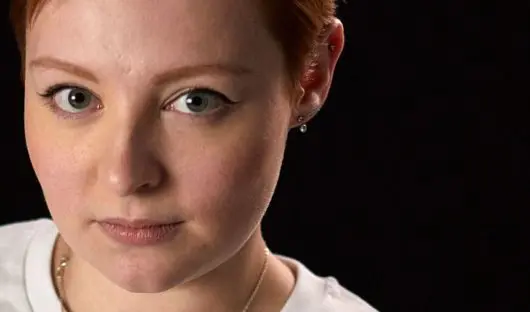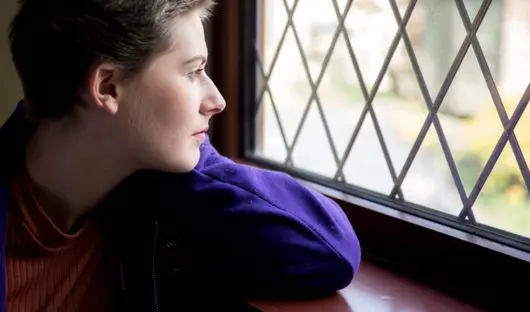Life after cancer: Getting back to “normal” after treatment
Once you have finished cancer treatment, life does not suddenly go back to “normal”. In fact, life after cancer can hit hardest emotionally. The routine, people and support you’d gotten used to suddenly falls away. You are left trying to make sense of what happened to you and trying to piece your life back together again. Your treatment has finished, so what’s the problem? Let’s break down the main considerations for life after cancer and getting back to “normal”.
Getting back into work or education
The physical effects of treatment
Leaving hospital life behind
The familiar surroundings and routine of treatment can become a key part of what gets you through. The care and attention from doctors, nurses, care professionals and friends becomes essential in those hard times. Then you finish treatment, and the bubble bursts. Those faces aren’t around anymore. You find yourself back at home, trying to build a new routine – and it’s all up to you. Trying to put cancer behind you and move forward with your life is daunting. It can feel lonely and scary – you might not feel ready for it.
You might feel isolated but you aren’t on your own. Time will help to make life, as it is now, feel more normal and do-able. You don’t have the safety net of your team and friends at hospital anymore and filling this gap is easier said than done, but there will always be people you can turn to. Talking to other people who have been through it is a good place to start – join our Team Young Lives Facebook group and post how you feel. You’ll probably be surprised to find how many people feel the same way.
HarryThe hospital felt like the only world I knew. Hospital care and bed had been my routine for so long that I struggled to process coming out of it. The support structures feel like they fall away and I know that there are people you can go to, but I was used to just being surrounded by support. It was very difficult to get used to.

Friendships on the outside
Most friends are bound to find it difficult to get what you’ve been through. They’re probably just glad to have you back and are excited to be ‘normal’ with you again. They don’t see that things have changed, and it’s just not that easy. That’s not to say you’re going to be a total party pooper. But there’s definitely pressure there to be the old, fun you when actually, you might feel like you’re not the same person as you were before your diagnosis.
You might feel disconnected from your friends. Missing out on stuff and feeling ‘out of the loop’ when you’re having treatment is frankly pants, and it might feel like everyone else has moved on. Plus, it’s not easy talking about it when you feel everyone just wants you to ‘get over it’.
Show them this page for a start. It will help them get a better idea of the varied and complex issues that people your age go through after finishing cancer treatment. They can never really understand in the same way as someone who’s been through it can. But if you open up to them about how you feel – and especially what you need – then if they’re a true mate, they will listen and take what you have to say on board.
JenniferYour cancer friends understand what you are going through. You go to them for things that you wouldn’t talk to friends at home about.

Finding your identity again
Do you still feel like the same person you were before diagnosis? Cancer doesn’t have to define you, but it might have changed you – or have made you see things differently. That’s not necessarily a bad thing. Going through hard times can give you strength you didn’t know you had. It can give you a unique perspective. But once you’re out of treatment, it’s normal to feel a bit lost. You’ve gone from the role of ‘patient’ to ‘survivor’ – but what does being a survivor mean? You might not identify with this term at all. It’s easy to allow cancer to become a big part of your identity – especially if you’re faced with the daily after-effects or the physical and emotional scars of treatment.
Take a step back. You need to find out what simply being you means now.
It might take a while to find your feet again but this will happen as you get back into different aspects of your life. Remember all the other things that you are – a student, a colleague, a blogger, a writer, an athlete, a musician, a dreamer, an explorer – you are so much more than just a survivor. You don’t need to ‘move on’ from cancer. Just be mindful of your experience, and don’t give it more attention than it deserves. Cancer isn’t you: it was just part of the process of discovering who you are.
HarryI have definitely been changed by cancer. I think about things a lot more now. I overthink and I worry about things. I over assess things that I’ve done. I know I will never be the same person again. It has changed me in many ways, although it's mostly changed me for the better. I certainly appreciate the small things more.

Changing plans
Cancer pulled the rug from beneath your feet at a pivotal point in your life. This is when you were supposed to be figuring stuff out. If you’re feeling pressure to return to the same job or course as before, what do you do? You might have a new perspective on life that just doesn’t fit in with what you were doing before. Or you might feel you missed out on time where you could have been discovering what you want.
You might feel a renewed sense of passion and purpose in life now, and have a clear vision of what you now want to accomplish. Or you might feel dissatisfied with going back to things as they were but can’t really put your finger on why. Use this as an opportunity to explore your options. Take some time, if you can, to think about what you would find fulfilling – this could be starting something new, or stopping something old. Talk it through with the important people in your life. You could also have a look at the National Careers Service to find out more or get inspiration.
HaroonMy young person's community worker helped me re-assess my career options and focus on what I actually wanted to do, rather than what I thought I should do because of what my degree had been in.

Getting back into work or education
Time away from work or education can make things tricky (like it needs to be any harder). You might have gaps on your CV or be expected to restart your course where you left off. Tiredness and other physical effects could mean working full time isn’t an option, or that studying needs to take a back seat. This might all leave you feeling frustrated and that you can’t move forward in the way you want.
First thing to do is know your rights. Not employing someone because of their illness or making reasonable adjustments to help them study are forms of discrimination. You can share our guides with prospective employers, or educational establishments to give them a better understanding of what their responsibility is to you.
For advice and support, Access to Work is a government programme designed to support people with health conditions or disabilities to get back into work. Or speak to your place of education – they are likely to have a support service that can offer advice, or look at UCAS for more guidance.
HaroonThe feedback I got from interviews I went for was that my cancer wasn’t an issue, it was my lack of work experience – obviously, having got cancer in my last year at university stopped me getting the work experience placements I needed.

The physical effects of treatment
Managing ongoing effects such as fatigue, disability or fertility issues can be a massive challenge, both physically and emotionally. You might have to overcome more obstacles in your life because of these, whether that’s to do with work, education or relationships.
Educate people about your needs. Let them know that there are barriers to you doing certain things. Giving people an understanding will help make life a little easier for you – whether that’s an employer making a reasonable adjustment to make work more doable, or confiding in a friend that you’re too knackered to go to that thing. It will help them give you the practical or emotional support you need. Our guides for the people in your life are designed to give a snapshot into cancer, so make sure you share them.
HaroonI felt quite fragile. I felt depressed. I’d put on a lot of extra weight with the steroids.

Dealing with everything you’ve been through
After treatment, the sheer emotional weight of what you’ve been through could start to hit home. It’s normal to reflect on the enormity of what you’ve been through but it can be emotionally draining when all those feelings start to catch up with you. The loss of friends and ‘survivor guilt’ can be particularly difficult to get your head around.
It can be daunting to seek help, but if what you’ve been through does begin to catch up with you, remember that it’s normal to feel this way and you don’t have to go through it alone. Get support to help you come to terms with these feelings.
JenniferWhen I went home it was much harder. It wasn’t until one of the friends I made passed away that everything I’d been through hit me at once, and I realised I hadn’t dealt with anything. All these feelings I’d bottled up over the past year just exploded and I hit rock bottom. I didn’t want to leave my flat, I didn’t want to speak to anyone, I just shut everyone out. My mum and dad were really worried about me.

Scanxiety and fear of relapse
Cancer doesn’t just stop. You’ll need to have follow-up appointments, with scans and tests to check that your body is working as it should be. But this can bring it all back – the stress and anxiety. How do you get on with things if you’re constantly on stand-by?
Make sure you schedule your appointment for whenever works for you. Pick a busy day if you like to have distractions, or a quiet day if you need time and space to mentally prepare. There are also calming techniques to make use of – whether it’s a mindfulness app or just remembering to take deep breaths. Maybe a friend or relative could come with you to remind you? Having someone there to support you through it could make all the difference. And make sure you plan a treat afterwards!
If scanxiety is causing you a lot of worry and stress, speak to your healthcare team to see how they can help.
JenniferEvery three months I still have to have my bone marrow tested. They screw deeply into my hip to get the sample, then I have to wait for the results, which makes me really anxious. Emotionally I go in a circle. Leading up to the bone marrow each time I’m anxious and down, then worried about the results. Then once I start to feel better again, it’s time for another test.

You might also like...
Body image and cancer treatment
Dealing with changes to your body can knock your confidence. Here's how to boost your self-esteem.
Read more
Contacts for your emotions and mental health
Useful organisations, resources, apps and communities for emotional and mental health support.
Read more
For teens and young adults
Every young person is unique. That's why we provide a service to fit your lives and aspirations.
Read more
Useful reading and resources
Chat to other young people with cancer on Facebook
Join in the conversation on Team Young Lives Facebook group. Share your advice, read about other experiences and get more involved in CLIC Sargent's work.
Join the groupAftercure
Information for teenage and young adult survivors of cancer that covers long-term follow-up, possible late-effects of your cancer or its treatment, education, jobs, finances, fertility, emotions and moving on.
Get expert advice about follow-up careJTV Cancer Support
Watch videos of teenagers and young adults talk about their experiences during and after cancer. This project allows young people to explore and express their feelings, and make some sense of their very personal journeys from diagnosis onwards.
Visit the websiteLook Good Feel Better
Resources and workshops to help women and teenagers manage the visible side effects of cancer treatment, to increase people’s confidence and self-esteem at a very difficult time in their lives.
Visit the websiteTrekstock
Trekstock gets young adults moving again by offering a variety of tailored exercise support, expert practical advice and an active online and offline community.
Visit the websiteNHS Choices
The NHS website has information about support services, medical conditions, mental health and emotions, after effects such as fatigue, healthy eating, exercising, stress busting tips and therapies.
Visit the website